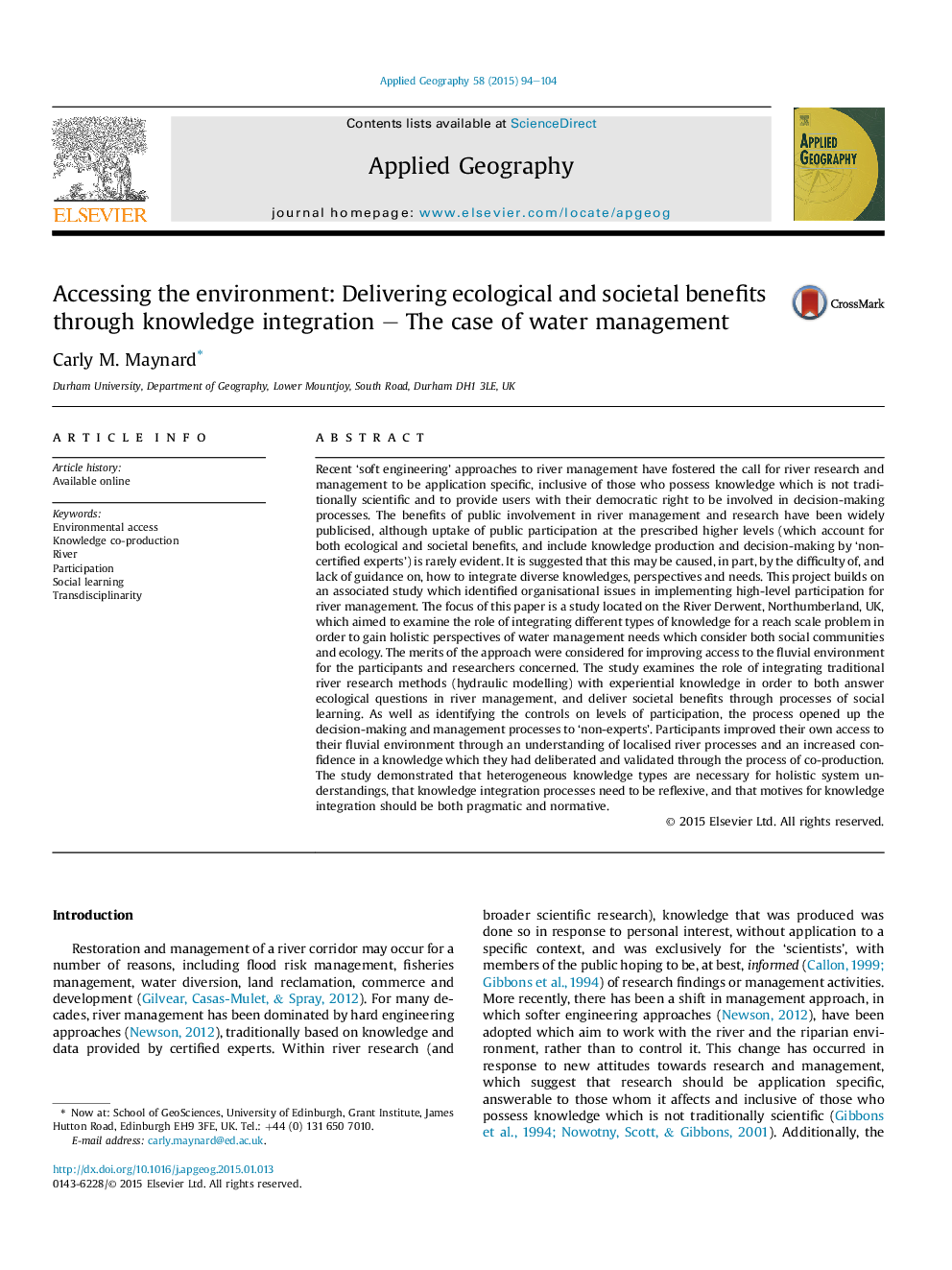| کد مقاله | کد نشریه | سال انتشار | مقاله انگلیسی | نسخه تمام متن |
|---|---|---|---|---|
| 6538595 | 158705 | 2015 | 11 صفحه PDF | دانلود رایگان |
عنوان انگلیسی مقاله ISI
Accessing the environment: Delivering ecological and societal benefits through knowledge integration - The case of water management
ترجمه فارسی عنوان
دسترسی به محیط زیست: ارایه مزایای زیست محیطی و اجتماعی از طریق ادغام دانش - مورد مدیریت آب
دانلود مقاله + سفارش ترجمه
دانلود مقاله ISI انگلیسی
رایگان برای ایرانیان
کلمات کلیدی
دسترسی به محیط زیست، تولید دانش دانش، رودخانه، مشارکت، یادگیری اجتماعی، تربیت دینی،
موضوعات مرتبط
علوم زیستی و بیوفناوری
علوم کشاورزی و بیولوژیک
جنگلداری
چکیده انگلیسی
Recent 'soft engineering' approaches to river management have fostered the call for river research and management to be application specific, inclusive of those who possess knowledge which is not traditionally scientific and to provide users with their democratic right to be involved in decision-making processes. The benefits of public involvement in river management and research have been widely publicised, although uptake of public participation at the prescribed higher levels (which account for both ecological and societal benefits, and include knowledge production and decision-making by 'non-certified experts') is rarely evident. It is suggested that this may be caused, in part, by the difficulty of, and lack of guidance on, how to integrate diverse knowledges, perspectives and needs. This project builds on an associated study which identified organisational issues in implementing high-level participation for river management. The focus of this paper is a study located on the River Derwent, Northumberland, UK, which aimed to examine the role of integrating different types of knowledge for a reach scale problem in order to gain holistic perspectives of water management needs which consider both social communities and ecology. The merits of the approach were considered for improving access to the fluvial environment for the participants and researchers concerned. The study examines the role of integrating traditional river research methods (hydraulic modelling) with experiential knowledge in order to both answer ecological questions in river management, and deliver societal benefits through processes of social learning. As well as identifying the controls on levels of participation, the process opened up the decision-making and management processes to 'non-experts'. Participants improved their own access to their fluvial environment through an understanding of localised river processes and an increased confidence in a knowledge which they had deliberated and validated through the process of co-production. The study demonstrated that heterogeneous knowledge types are necessary for holistic system understandings, that knowledge integration processes need to be reflexive, and that motives for knowledge integration should be both pragmatic and normative.
ناشر
Database: Elsevier - ScienceDirect (ساینس دایرکت)
Journal: Applied Geography - Volume 58, March 2015, Pages 94-104
Journal: Applied Geography - Volume 58, March 2015, Pages 94-104
نویسندگان
Carly M. Maynard,
